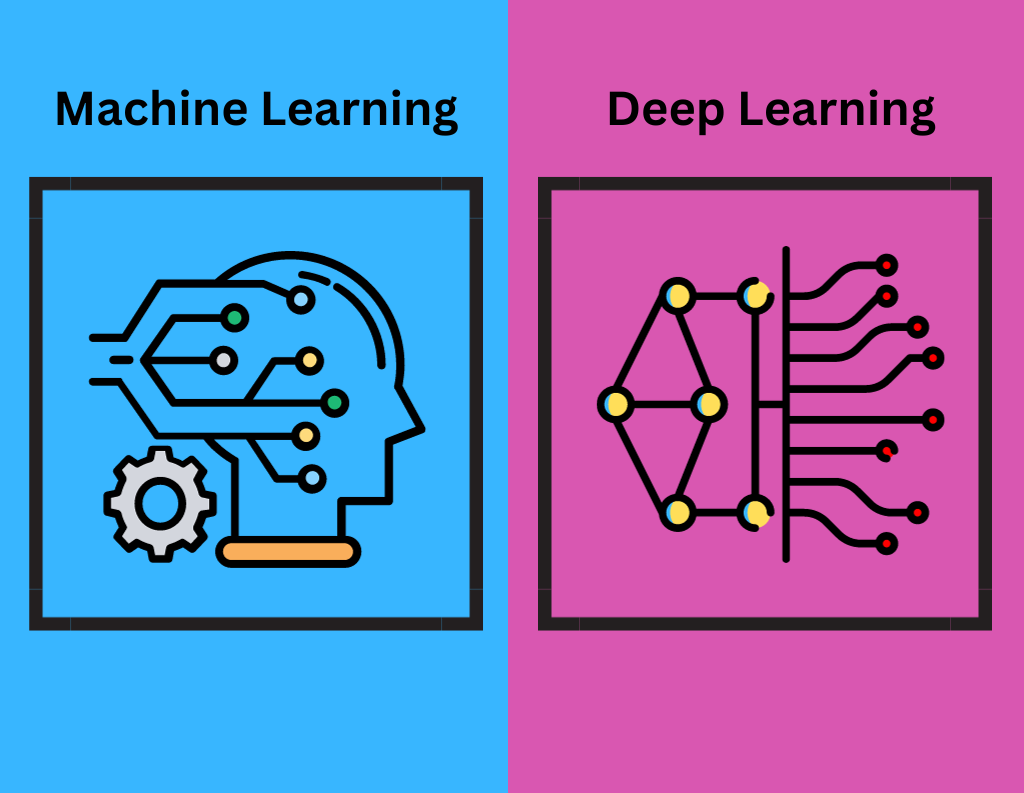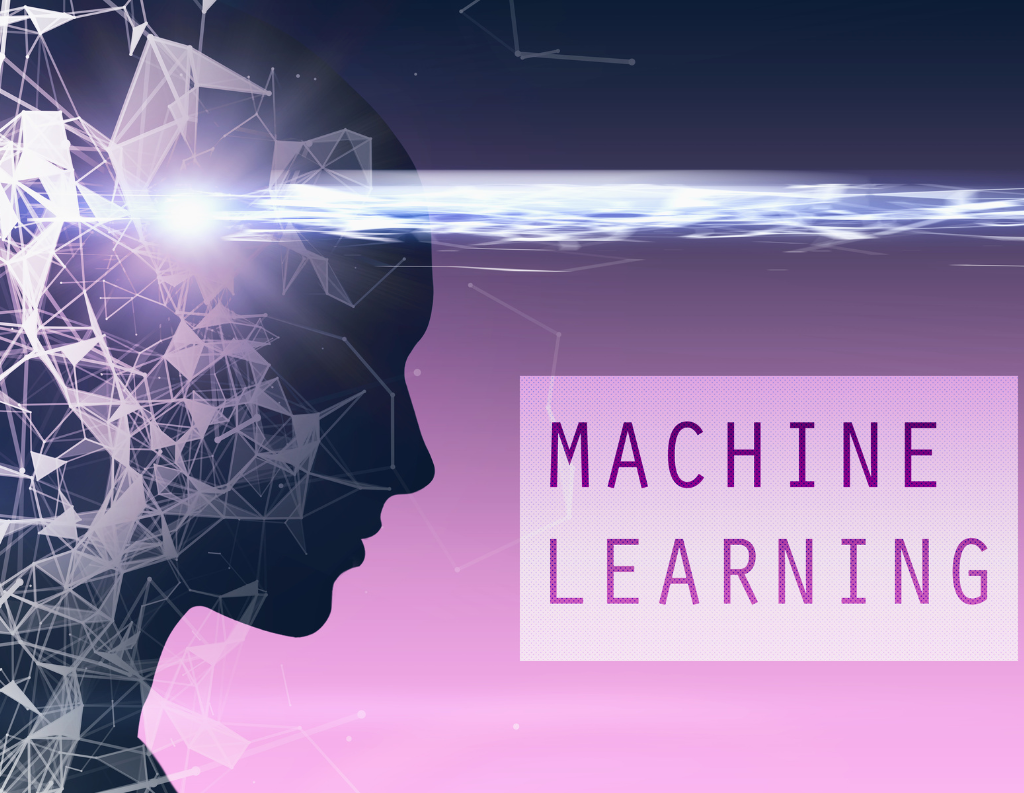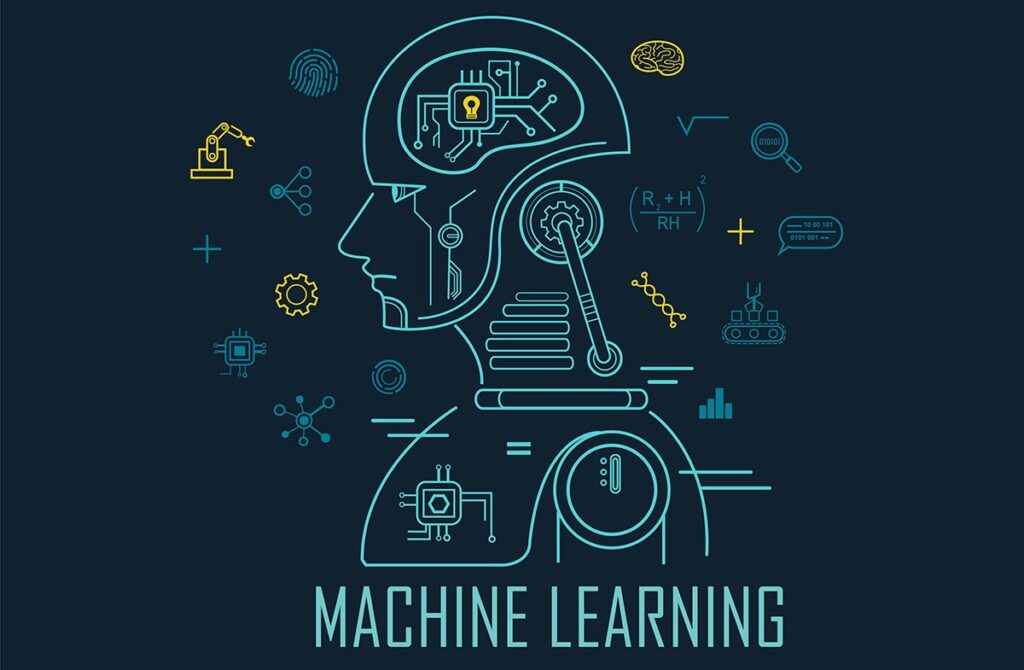
DATADRIX : Machine Learning
Harnessing the Potential of Machine Learning
A comprehensive program designed to provide in-depth knowledge of machine learning concepts, algorithms & applications. Explore supervised & unsupervised learning techniques, delve into regression, classification & clustering algorithms & understand the fundamentals of model evaluation and optimization. Develop practical skills through hands-on projects, learn to implement machine learning models using popular frameworks & gain the expertise to solve real-world problems. By enabling machines to adapt and improve over time, machine learning is driving innovation across various industries, from healthcare to finance, revolutionizing the way we process information, make predictions, and solve complex problems.
Machine Learning
Harnessing Data’s Hidden Insights with Machine Learning
Embark on a transformative journey into the world of artificial intelligence with our Machine Learning course. Machine Learning is at the forefront of technological innovation, enabling computers to learn and adapt without explicit programming. Our comprehensive program offers a deep dive into the foundations of machine learning, from understanding algorithms and models to practical implementation. Whether you’re a seasoned data scientist or just starting your AI exploration, our course caters to all levels of expertise. Learn from leading experts in the field, gain hands-on experience with real-world datasets, and harness the power of machine learning to drive innovation and make data-driven decisions.
Our Machine Learning course goes beyond theory; it’s a hands-on, project-driven experience that equips you with the skills to tackle real-world challenges. You’ll work on diverse projects, from image recognition and natural language processing to predictive analytics, guided by our team of experienced instructors. The course also delves into the latest trends in machine learning, ensuring you stay up-to-date with the rapidly evolving field. By the end of the program, you’ll have a portfolio of projects that demonstrate your expertise in machine learning, ready to impress potential employers or take your current career to new heights.
The field of machine learning is in high demand, and our course prepares you for a wide range of career opportunities. Whether you’re seeking to transition into a data science role, advance in your current job, or embark on a new career path, our certification is your passport to success. Our program covers the skills and knowledge needed to excel in machine learning, and our certification is a testament to your expertise. Join us in this exciting journey of discovery and innovation as you become a machine learning expert, making a lasting impact in an AI-driven world.
In-Demand Skill: Machine learning is the science of programming computers to improve their performance through learning from data, making it a critical component of modern data-driven decision-making. In this course, you will learn the foundations of machine learning, how to develop predictive models, and harness the power of algorithms to make sense of complex data.
Beginner-Friendly: Whether you have minimal coding experience or are transitioning from a different field, this course provides a supportive and easy-to-follow learning path. You’ll discover the essentials of data analysis, model building, and algorithm implementation, all in a beginner-friendly manner.
Versatility: You’ll harness the power of algorithms to uncover patterns, make predictions, and solve a wide range of real-world problems across industries, from healthcare and finance to e-commerce and beyond.
Structured Learning: You’ll explore the principles of machine learning, delve into algorithms, and gain practical experience with real-world datasets. This course is your gateway to harnessing the power of artificial intelligence to make data-driven decisions and build predictive models.
Hands-On Practice: Our machine learning course offers hands-on practice, allowing you to delve into the world of artificial intelligence. You’ll work directly with real data, build and train machine learning models, and gain practical experience in solving complex problems..
Customized Learning Paths: Whether you’re a beginner looking to grasp the fundamentals or an experienced data scientist aiming to refine your skills, our program allows you to tailor your learning journey.
Experienced Instructors: Our machine learning course is led by experienced instructors who are experts in the field. This program is designed to provide a deep and practical understanding of machine learning techniques and their real-world applications.
Career Advancement: Whether you’re starting your career or looking to upskill, this course is your pathway to seizing exciting opportunities and advancing in the world of technology and innovation
Job Placement Support: We provide valuable guidance, connect you with industry partners, and assist in your job search, ensuring you’re well-prepared to secure lucrative positions in the field of Machine Learning. Your success is our priority, and our Job Placement Support is designed to help you achieve your professional goals
Community and Networking: Our machine learning course is a perfect opportunity for community and networking. In this course, you’ll not only dive deep into the world of machine learning but also connect with like-minded individuals who share a passion for this transformative technology.
Certification: This certification is your passport to a world of opportunities in data science, artificial intelligence, and more, as it showcases your expertise in one of the most sought-after areas of technology and innovation
Continuous Learning: You’ll discover how machine learning algorithms work, explore real-world applications, and stay updated with the latest advancements in this rapidly evolving field. By embracing continuous learning, you’ll be well-prepared to adapt to the ever-changing landscape of machine learning and stay at the forefront of innovation
Ongoing Support: Even after completing the training, you’ll have access to resources and support, ensuring you stay up-to-date with the latest developments in Machine Learning.
Embarking on a MySQL training journey at DATADRIX is an investment in your future, whether you’re just starting your career or looking to further develop your skills. We welcome both fresher and experienced students to join us and explore the exciting world of IT Technologies.

Course Syllabus :
A syllabus is a meticulously crafted document that serves as a comprehensive roadmap for the training program. It plays a pivotal role in guiding candidate along their learning journey, offering a structured framework for acquiring knowledge and honing skills.
A well-designed syllabus offers a bird’s-eye view of the course’s content, complete with a meticulous breakdown of modules or units, well-crafted lesson plans, and a timeline for completion. It doesn’t merely outline what candidate will learn but also lays out the precise learning outcomes and objectives that they’re expected to master by the course’s conclusion.
Embedded within the syllabus are detailed descriptions of each topic, accompanied by a treasure trove of learning resources, suggested readings, and insights into the methods by which knowledge will be assessed. It’s not just a map, it’s a compass guiding candidate through a labyrinth of assignments, projects, exams, and a transparent grading system, making their educational journey as informed and rewarding as possible.
An Awesome Community
Our students, instructors and mentors come from different colleges, companies, and walks of life.
Meet our team and students

Joining DATADRIX means you’ll create an amazing network, make new connections,
and leverage diverse opportunities.

“Validate Your Expertise and Propel Your Career”
- Certification: A testament to your skills and knowledge, certifications demonstrate your proficiency in specific areas of expertise, giving you a competitive edge in the job market.
- Expand Opportunities: Certifications to unlock new career opportunities, gain credibility with employers, and open doors to higher-level positions.
- Continuous Growth: Certifications not only validate your current skills but also encourage continuous learning and professional development, allowing you to stay updated with the latest industry trends and advancements.
Frequently Asked Questions

Machine learning vs Deep Learning
Add context to your column. Help visitors understand the value they can get from your products and services.

Prerequisites for Machine Learning
Add context to your column. Help visitors understand the value they can get from your products and services.

What is the scope of machine Python
Add context to your column. Help visitors understand the value they can get from your products and services.

Duration and scope of python language
Add context to your column. Help visitors understand the value they can get from your products and services.
